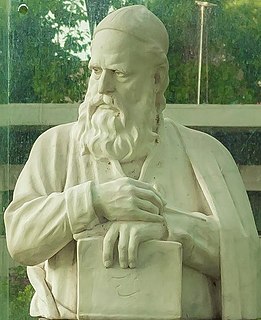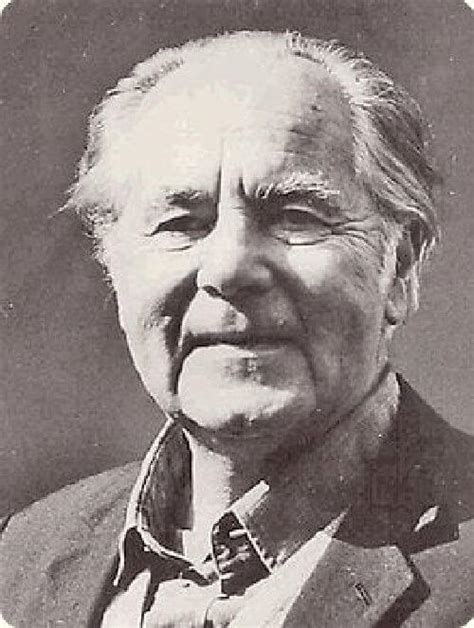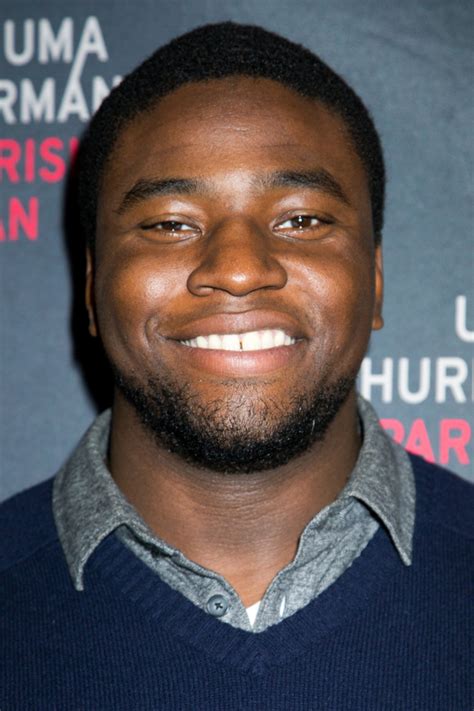A Quote by Thomas Bailey Aldrich
Sorrow itself is not so hard to bear As the thought of sorrow coming. Airy ghosts, That work no harm, do terrify us more Than men in steel with bloody purposes. Death is not dreadful; 'tis the dread of death— We die whene'er we think of it!
Related Quotes
It is abundantly evident that, however natural it may be for us to feel sorrow at the death of our relatives, that sorrow is an error and an evil, and we ought to overcome it. There is no need to sorrow for them, for they have passed into a far wider and happier life. If we sorrow for our own fancied separation from them, we are in the first place weeping over an illusion, for in truth they are not separated from us; and secondly, we are acting selfishly, because we are thinking more of our own apparent loss than of their great and real gain.
'Tis sorrow builds the shining ladder up, Whose golden rounds are our calamities, Whereon our firm feet planting, nearer God The spirit climbs, and hath its eyes unsealed. True it is that Death's face seems stern and cold When he is sent to summon those we love; But all God's angels come to us disguised; Sorrow and sickness, poverty and death, One after another, lift their frowning masks, And we behold the Seraph's face beneath, All radiant with the Glory and the calm Of having looked upon the front of God.
To begin depriving death of its greatest advantage over us, let us adopt a way clean contrary to that common one; let us deprive death of its strangeness, let us frequent it, let us get used to it; let us have nothing more often in mind than death... We do not know where death awaits us: so let us wait for it everywhere." "To practice death is to practice freedom. A man who has learned how to die has unlearned how to be a slave.
Death is an unsurpassable limit of human existence... We discover the relationship which is the basis for all feelings of reverence, fear, awe, wonder, sorrow, and deference in the face of something greater and more powerful... Only such a being-unto-death can guarantee the precondition that the Da-sein be able to free itself from its absorption in, its submission and surrender of itself to the things and relationships of everyday living and to return to itself.
As we look upon that agony and those tearful prayers, let us not only look with thankfulness; but let that kneeling Saviour teach us that in prayer alone can we be forearmed against our lesser sorrows; that strength to bear flows into the heart that is opened in supplication; and that a sorrow which we are made able to endure is more truly conquered than a sorrow which we avoid
So to be sick unto death is, not to be able to die-yet not as though there were hope of life; no, the hopelessness in this case is that even the last hope, death, is not available. When death is the greatest danger, one hopes for life; but when one becomes acquainted with an even more dreadful danger, one hopes for death. So when the danger is so great that death has become one's hope, despair is the disconsolateness of not being able to die.
Recently, one friend asked me, "How can I force myself to smile when I am filled with sorrow? It isn't natural." I told her she must be able to smile to her sorrow, because we are more than our sorrow. A human being is like a television set with millions of channels. If we turn the Buddha on, we are the Buddha. If we turn sorrow on then we are sorrow. If we turn a smile on, we really are the smile. We can not let just one channel dominate us. We have the seed of everything in us, and we have to seize the situation in our hand, to recover our own sovereignty.
The greatest mystery in life is not life itself, but death. Death is the culmination of life, the ultimate blossoming of life. In death the whole life is summed up, in death you arrive. Life is a pilgrimage towards death. From the very beginning, death is coming. From the moment of birth, death has started coming towards you, you have started moving towards death.






































